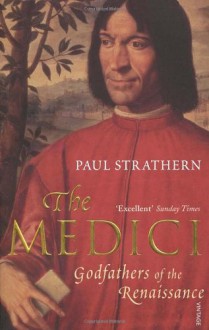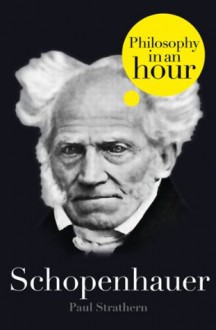
One-sentence summary. This is a thin biography of several generations of the Medici family, written at the level of a good wikipedia entry, with no depth or complexity, and unfortunately nothing new to add.
Research. I was prepared to think the author had trained himself well enough in the history of the Medici to write this book until I came to the period of time I actually knew something about (1537 to about 1545). Three glaring mistakes made me mistrust everything else I had read in the book to that point: Caterina Soderini Ginori is described as Lorenzino di Pierfrancesco de' Medici's sister, when she was his mother's sister (p. 326); Maria Salviati is referred to as Lorenzo the Magnificent's daughter, when she was in fact his granddaughter (p.328); the author calls Eleonora da Toledo "Don Pedro's only daughter," when Cosimo I was famously offered the hand of Don Pedro's eldest daughter and vehemently refused it, insisting on the younger daughter, Eleonora, instead. (p.334) A smaller mistake--which should have been caught in copyediting--was that Emperor Charles V was referred to as Charles VII in one paragraph.
Homophobia. I was offended and perplexed by the author's frequent, sometimes pointless references to homosexuality. He rarely makes it clear whether he's expressing the opinion of the time, or letting his own feelings intrude. Given that "homosexual" wasn't even a word until the 1800s, it seems irresponsible to make commentary about sexual behavior without attribution, and without delving more deeply into the historical attitudes regarding sexuality. A few examples:
In the words of a contemporary: '[Henry III of France and his buddies] all dress alike in coats of many colours and they are sprinkled with violet powder and other sweet perfumes.' Catherine [de Médicis] seemed to accept [her son Henri III's] homosexuality as perhaps inevitable in the weak son of such an overbearing mother. However Henri III's pathological extravagance, together with his interest in zealous religious flagellants, appear to hint at deeper deviancy from the norm. (p. 350)
Just who is saying what, here? Is the author saying that Catherine herself accepted that her own overbearing personality "made" her son a homosexual? Or is that the author's opinion? Is it the opinion of the unnamed "contemporary" at court? And how are we to interpret "deeper deviancy from the norm?" Does it mean that homosexuality is "deviant?" Is that the author speaking? If not, is it a historically accurate viewpoint of the time?
The fact that Donatello's David is "erotically homosexual" is mentioned without controversy and almost obsessively several times (pp. 108, 109, 111, and more...). There's considerable disagreement among scholars about whether sexuality was one of Donatello's points while creating this sculpture.
The author suggests that Poliziano was gay, and that his relationship with Lorenzo the Magnificent wasn't platonic:
This raises the question of [Poliziano's] love for Lorenzo, and of Lorenzo's feelings for Poliziano; risking widespread outrage, it is possible to suspect that their attachment may on occasion have been more than platonic. In the light of [Poliziano's presumed] sexuality, the ardent love expressed by Poliziano for Lorenzo takes on a less purely poetic aspect. There is of course nothing but suggestive evidence to support this suspicion. Apart, that is, from one disputed fact about Donatello's somewhat ambisexual David... (pp. 178-179)
Mr. Strathern goes on to say that Lorenzo may have been the one to install Donatello's statue in the Medici courtyard, rather than Cosimo the Elder, and this could mean it was a hidden message from Lorenzo about his own sexuality. Lorenzo's "covert bisexuality" is postulated without a single scholarly footnote.
Later, Leonardo da Vinci's strong personality is attributed to his homosexuality, which is in turn due to...the devoted love of mother figures in his life?? Really??
[Leonardo da Vinci's two stepmothers] doted on the young Leonardo as if he were their own." When they died in succession during his teenage years it must have been a source of deep personal pain, and this may have been responsible for a certain reserved self-possession that soon became evident in his character. Yet it was the continuum of unquestioning female love that lasted through his childhood, youth and into early manhood which affected him most. This gave him the utter self-belief which comes from being the centre of such a worshipping motherly world; and it may also have contributed to his homosexuality. (p. 188)
In sum. I'm sorry that some people will read this book trying to understand the Medici family, and will unwittingly read something that's not particularly well researched, that contains inaccuracies, and that contributes nothing new other than guesses at the sexuality of historic figures and what might have "made" them that way.
A note to Pegasus Books, the publisher: my first-edition hardcover of this book had very wonky print. The font changed sizes from one sentence or paragraph to the next, and almost seemed skewed in some places, as if it were a bad PDF of a printed copy. It was distracting, and hard on the eyes.

 Log in with Facebook
Log in with Facebook 











